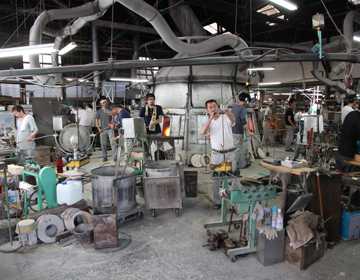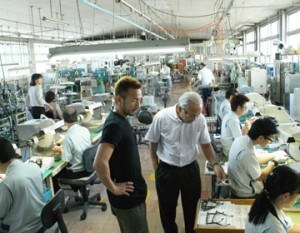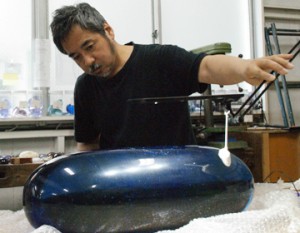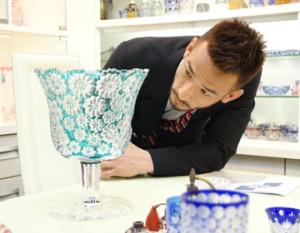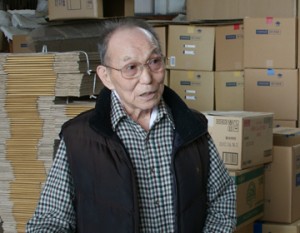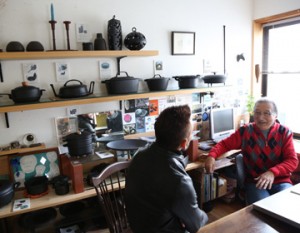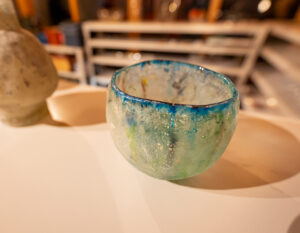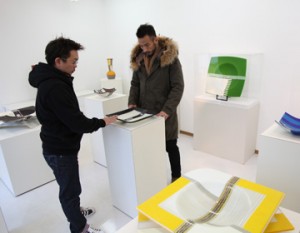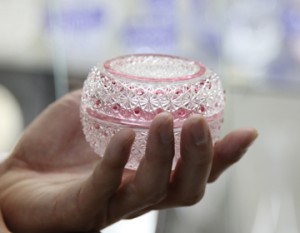A Gift from the Glass Lightbulb
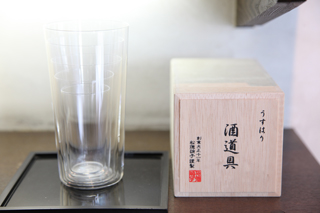
Shotoku Glass Co., Ltd was established in 1922 originally as a manufacturing factory for light bulbs.
With advances in technology, the glass light bulb manufacturing became automated, chasing the craftsmen out of jobs.
Soon the craftsmen started to gain popularity for their “mouth-blown” glasses.
The company is renowned for Edo glass, which are fine delicate “small beer glasses” that has earned a high reputation among top-rated Japanese restaurants. Many guests usually drink beer from the small beer glass as a precursor to their meals. The small glass is often available at Japanese banquets. The company flourished by making these glasses, by taking advantage of the “mouth-blown” technique honed through light bulb manufacturing.
The Thin and Delicate “Usuhari” Series
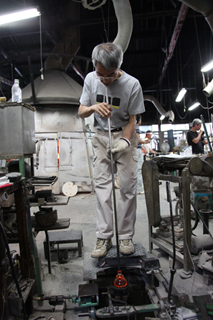
Shotoku Glass continues to manufacture sophisticated, thin glasses mainly for drinking. They have taken their technique one step further by creating a brand called “Usuhari”, which literally means “thin glass”. The thinness of the glass rim, and the sound of the ice in the glass, helps enhance the taste of the drink.
We visited their showroom to see the glasses on display, and then went to the adjacent factory. There were a dozen craftsmen creating the Usuhari series and other glassware. Yoshifumi Saito, from the PR department showed us around, and explained “ Usuhari requires tremendous care, much more than the standard glassware.
First, the glass has to be melted at the perfect timing, as the Usuhari design is simple and the thinness needs to be uniform. Flaws in the glass would be conspicuous. “Usuhari cannot be made until all conditions are right – the condition of the kiln, the basic materials, wind, temperature. Everything needs to be perfect. As a result, there are days when Usuhari cannot be made. “And yes, of course the craftsmen’s skills. For example, if you are making a 100 g glass, you need to calculate in advance how much will be cut off to create a 100 g glass. That is how much glass you need to bring out from the kiln. Otherwise, the thickness and weight of the glass will not be uniform, and that flaw would be quite evident. “
There is perfect management and sophisticated skill behind the Usuhari brand name.
Establishing awareness for what cannot be created by machines
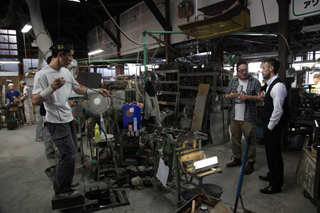
We went back to the showroom to learn more. At Shotoku Glass Co., original glasses can be made upon request. (quantity, budget, etc. to be discussed) Nakata was extremely interested in this. The design and shape can be special ordered as well. As all procedures at Shotoku Glass Co., is done by hand, Saito told us, ”We must make things that cannot be done by machine-manufactured glass.”
”If machine-made glass were 1000 yen, hand-made ones would be 1500 yen. The 500 yen difference must be because it is handmade. We cannot create the same glass. We need to add value that would satisfy people and convince them to pay 500 yen more.” The ”Usuhari” series is an example of this. People may think that the thin delicate pieces is suitable for automation. In actuality, the melting temperature for glass is adjusted according to the weather of the day. Only sophisticated skilled workers can draw precisely 100 grams every single time, based on their experience and senses.



